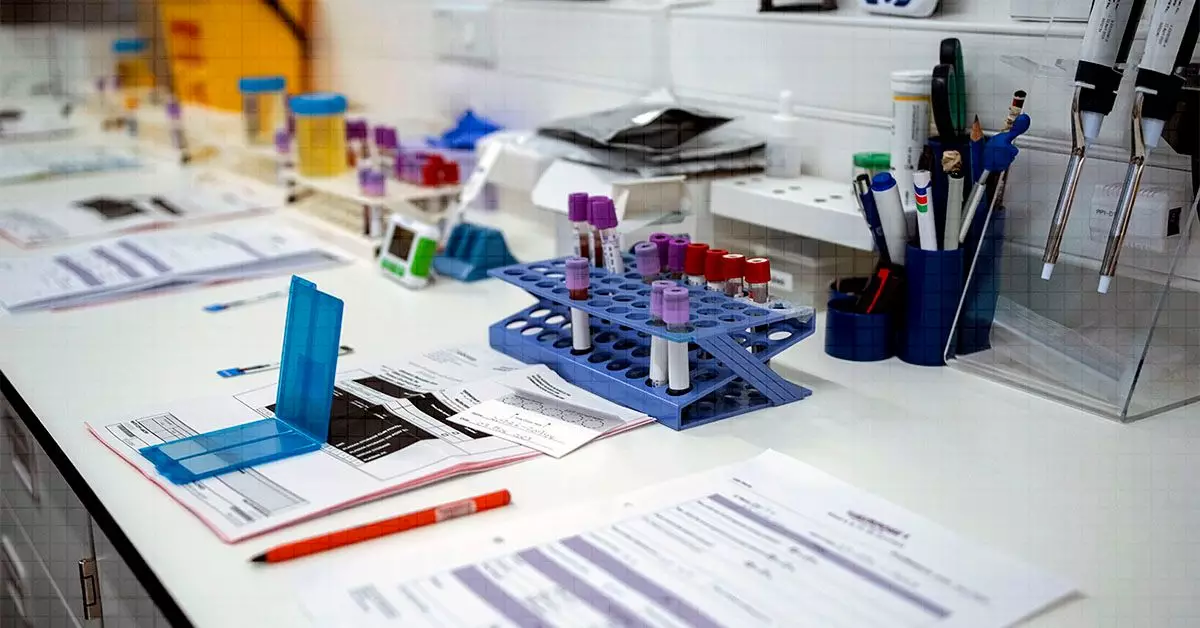Colorectal cancer often lurks quietly in the shadows, evading detection in its early stages, which is unfortunate given its rising prevalence among younger populations. A staggering emergence of symptoms such as unexplained weight loss, changes in bowel habits, fatigue, and rectal bleeding typically manifests when the disease has already advanced. According to a recent 2023 study, nearly all participants under 50 diagnosed with colorectal carcinoma presented with multiple symptoms, highlighting a concerning trend that emphasizes the necessity for awareness and early intervention.
This phenomenon is particularly alarming for individuals under 45 who report these symptoms. Many may brush off their experiences as mere digestive issues or stress-related discomfort, inadvertently allowing a potentially fatal disease to escalate. There exists a grave disconnect that frequently leaves younger adults unaware of their vulnerability to this traditionally older demographic disease. The initial nonspecific symptoms often resemble common ailments like IBS, gastritis, or simple food intolerances, making it imperative for younger individuals to consult health professionals for a thorough evaluation.
Screening: The Armor Against Cancer
The American Cancer Society’s recommendation for routine screening to commence at age 45 is a critical preventive measure that everyone should heed. However, this age marker should not dissuade those exhibiting symptoms from seeking earlier screenings. The general perception that colorectal cancer is an affliction reserved for the older populace must be dismantled. Those with risk factors—family history, genetic syndromes, inflammatory bowel disease, or a lifestyle laden with processed foods and lack of physical activity—may benefit from more urgent screening and surveillance.
Screening tests, if conducted promptly, can illuminate the path to earlier diagnoses, leading to a higher success rate in treatment outcomes. It is through these assessments that precursors to colorectal cancer, such as polyps, are identified and addressed. Medical professionals rely on a variety of screening modalities, ranging from fecal occult blood tests to colonoscopies, each of which plays a crucial role in cancer prevention and early detection.
Empowerment Through Education and Action
As we navigate this crucial health terrain, it is vital to empower individuals with knowledge about the early warning signs of colorectal cancer. Education on these symptoms must be intensified, especially targeting younger demographics who may dismiss their worries or lack knowledge of the potential for serious illness. Awareness campaigns can catalyze crucial conversations with healthcare providers, fostering a culture where seeking help is not met with stigma but rather with encouragement.
Moreover, the health system must evolve to better address the unique challenges faced by younger patients. Awareness programs should inform about risk factors and advocate for symptom recognition and timely medical discussion. Empowered patients who feel equipped to advocate for their health can, in turn, lead to earlier diagnoses.
There’s an urgent need to break the silence surrounding colorectal cancer among younger adults. A cultural shift that prioritizes proactive healthcare, symptom acknowledgment, and continued education will fortify our community against this silent threat. The more we talk about it, the less chance this serious disease has to go undetected. It’s time to prioritize our health and challenge the norms that dictate who is susceptible to colorectal cancer.

